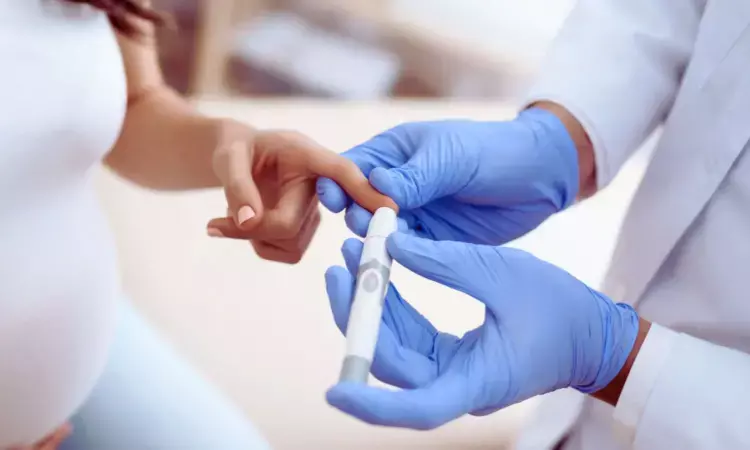- Home
- Medical news & Guidelines
- Anesthesiology
- Cardiology and CTVS
- Critical Care
- Dentistry
- Dermatology
- Diabetes and Endocrinology
- ENT
- Gastroenterology
- Medicine
- Nephrology
- Neurology
- Obstretics-Gynaecology
- Oncology
- Ophthalmology
- Orthopaedics
- Pediatrics-Neonatology
- Psychiatry
- Pulmonology
- Radiology
- Surgery
- Urology
- Laboratory Medicine
- Diet
- Nursing
- Paramedical
- Physiotherapy
- Health news
- Fact Check
- Bone Health Fact Check
- Brain Health Fact Check
- Cancer Related Fact Check
- Child Care Fact Check
- Dental and oral health fact check
- Diabetes and metabolic health fact check
- Diet and Nutrition Fact Check
- Eye and ENT Care Fact Check
- Fitness fact check
- Gut health fact check
- Heart health fact check
- Kidney health fact check
- Medical education fact check
- Men's health fact check
- Respiratory fact check
- Skin and hair care fact check
- Vaccine and Immunization fact check
- Women's health fact check
- AYUSH
- State News
- Andaman and Nicobar Islands
- Andhra Pradesh
- Arunachal Pradesh
- Assam
- Bihar
- Chandigarh
- Chattisgarh
- Dadra and Nagar Haveli
- Daman and Diu
- Delhi
- Goa
- Gujarat
- Haryana
- Himachal Pradesh
- Jammu & Kashmir
- Jharkhand
- Karnataka
- Kerala
- Ladakh
- Lakshadweep
- Madhya Pradesh
- Maharashtra
- Manipur
- Meghalaya
- Mizoram
- Nagaland
- Odisha
- Puducherry
- Punjab
- Rajasthan
- Sikkim
- Tamil Nadu
- Telangana
- Tripura
- Uttar Pradesh
- Uttrakhand
- West Bengal
- Medical Education
- Industry
OGTT in Early Pregnancy May Predict Gestational Diabetes Risk, Suggests Study

Switzerland: Researchers have found in a new study that a 75 g OGTT conducted at around 13 weeks of pregnancy can help identify women at high risk for developing gestational diabetes mellitus (GDM). The 60-minute glucose value showed the strongest predictive accuracy (AUROC 0.74), followed by 120-minute (0.72) and fasting (0.68). Early OGTT results were also linked with impaired insulin sensitivity, beta-cell dysfunction, and the likelihood of future insulin requirements.
- Out of the total participants, 83 women (12.6%) developed gestational diabetes mellitus (GDM) during pregnancy.
- Glucose levels measured at different time points during the early OGTT were effective predictors of GDM risk.
- The 60-minute glucose reading showed the highest predictive accuracy (AUROC 0.74).
- The 120-minute glucose value had an AUROC of 0.72, while fasting glucose had 0.68.
- Compared to other biomarkers such as maternal age and pre-pregnancy BMI, early OGTT results showed superior performance in forecasting disease risk.
- Early OGTT readings were associated with impaired insulin sensitivity.
- They were also linked to beta-cell dysfunction.
- Women with higher early OGTT readings were more likely to require insulin therapy later in pregnancy.
- These findings suggest that early glucose dynamics not only indicate GDM risk but also reflect underlying metabolic disturbances.
Dr Kamal Kant Kohli-MBBS, DTCD- a chest specialist with more than 30 years of practice and a flair for writing clinical articles, Dr Kamal Kant Kohli joined Medical Dialogues as a Chief Editor of Medical News. Besides writing articles, as an editor, he proofreads and verifies all the medical content published on Medical Dialogues including those coming from journals, studies,medical conferences,guidelines etc. Email: drkohli@medicaldialogues.in. Contact no. 011-43720751


